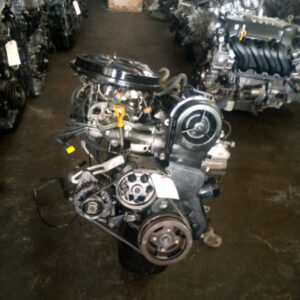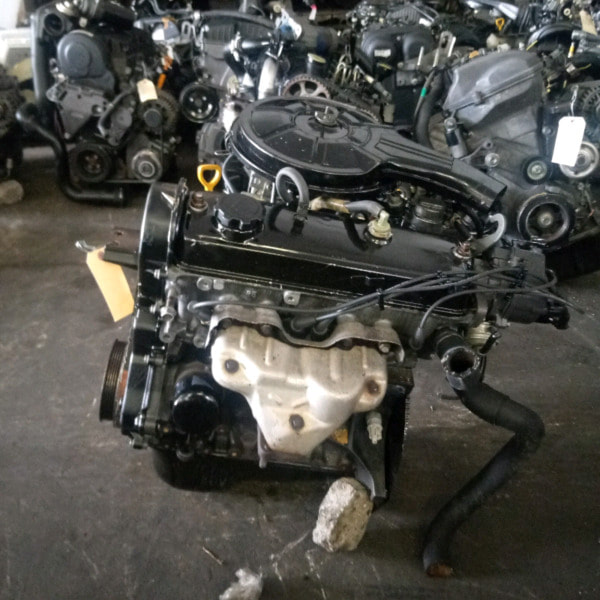Toyota Tazz: A Reliable and Affordable Compact Car for Everyday Use
Toyota Tazz: A Reliable and Affordable Compact Car for Everyday Use
Blog Article
Explore the most up to date Fads in Engine Innovation Through Tazz
In the swiftly developing landscape of vehicle technology, Tazz stands at the forefront, highlighting considerable innovations in engine systems that prioritize both development and sustainability. From crossbreed engines that maximize fuel efficiency to the development of hydrogen gas cells, the fads forming contemporary powertrains are not only improving efficiency yet additionally addressing vital ecological obstacles.
Crossbreed Engine Innovations
Crossbreed engine technologies represent a critical shift in automobile modern technology, integrating the advantages of inner combustion engines with electrical propulsion systems. This assimilation not only improves fuel efficiency however also minimizes exhausts, conference significantly rigorous ecological laws. By making use of both power sources, hybrid engines can optimize performance, delivering power when required while preserving gas during less requiring motoring conditions.
Recent advancements in crossbreed modern technology consist of enhancements in battery efficiency and regenerative stopping systems. These technologies permit better power recovery during slowdown, which can be redirected to assist in velocity or power auxiliary systems. Suppliers are concentrating on lightweight products and compact layouts to take full advantage of the efficiency of crossbreed powertrains.
The development of plug-in crossbreeds has likewise expanded the marketplace, enabling motorists to bill their automobiles using common electric outlets. This function often permits significant all-electric variety, more decreasing reliance on typical fuels. tazz. As the vehicle sector continues to progress, hybrid engine technologies are expected to play a critical role in connecting the void between conventional automobiles and totally electric models, supplying a transitional remedy that accommodates diverse consumer requirements and choices
Breakthroughs in Electric Powertrains
The automotive landscape is rapidly progressing, with electrical powertrains becoming a leading force in sustainable transportation. Developments in electrical lorry (EV) modern technology are significantly enhancing efficiency, efficiency, and customer experience. Secret technologies consist of enhancements in battery chemistry, which have actually increased energy density, minimized charging times, and extended overall battery life.
Solid-state batteries, as an example, assure to change the marketplace by supplying higher safety and efficiency contrasted to standard lithium-ion cells. Moreover, improvements in regenerative braking systems are enabling lorries to recuperate energy throughout deceleration, adding to total effectiveness.
Along with battery innovation, electric motor styles are becoming a lot more sophisticated. Technologies such as integrated electric motors and advanced thermal administration systems are helping to enhance power delivery and minimize weight, inevitably improving lorry dynamics.

Collectively, these advances emphasize the dedication to transition in the direction of cleaner, extra effective transportation solutions, placing electric powertrains at the forefront of auto technology.
The Increase of Hydrogen Fuel Cells
Significantly, hydrogen fuel cells are gaining grip as a practical alternative to typical interior combustion engines and battery electrical vehicles. This modern technology takes advantage of the chemical energy saved in hydrogen, converting it right into electrical power via an electrochemical response with oxygen. The primary by-product of this process is water, making hydrogen gas cells an eco-friendly option with no emissions at the tailpipe.

Automakers are progressively buying hydrogen gas cell technology, acknowledging its potential for long-range applications and fast refueling capacities that match standard fuels. Furthermore, sectors such as durable transportation and public transit are especially fit for hydrogen fuel cells, where battery electrical services might fail because of weight and array limitations.
As research study and financial investment proceed to expand, hydrogen fuel cells are positioned to play a substantial role in the future landscape of clean transport and power solutions.
Enhancements in Internal Combustion Engines
Advancements in inner burning engine (ICE) technology are transforming standard lorries to meet modern environmental requirements and efficiency assumptions. Among one of the most substantial improvements involves the integration of advanced fuel injection systems. These systems optimize the air-fuel mix, enhancing combustion effectiveness and leading to minimized exhausts. Straight gas injection, for example, enables for much better atomization of fuel, resulting in more complete combustion and enhanced power output.
In addition, turbocharging has actually acquired prominence, permitting smaller sized engines to deliver greater efficiency without the weight of larger engines - tazz. This technology not just increases efficiency yet likewise contributes to decrease fuel intake. Variable shutoff timing systems are also being improved, allowing engines to adapt to numerous driving conditions for boosted torque and responsiveness
Additionally, making use of light-weight materials in engine building and construction is ending up being basic, further improving fuel performance by decreasing total automobile weight. Engine control units (ECUs) page are progressively sophisticated, allowing real-time adjustments that enhance efficiency and emissions.
These enhancements collectively symbolize a critical change in ICE technology, straightening with global sustainability goals while still giving the performance motorists anticipate from their cars. As the sector evolves, these enhancements proceed to form the future of conventional vehicle design.
Future Trends in Engine Performance
Significant developments in engine efficiency are anticipated as manufacturers concentrate on integrating cutting-edge innovations to satisfy rigid ecological click this site laws and consumer needs. The shift towards electrification, crossbreed systems, and alternate gas is improving the automotive landscape, driving technologies that improve gas economic situation and reduce exhausts.
Among the crucial patterns is the application of sophisticated materials and producing strategies. High-strength alloys and lightweight composites contribute to reduced car weight, thus improving overall efficiency. In addition, the fostering of turbocharging and variable shutoff timing innovations permits improved power output from smaller sized engines, better improving fuel economy.

Conclusion
To conclude, the expedition of engine modern technology discloses significant developments that prioritize sustainability and effectiveness. Technologies in crossbreed engine systems, electrical powertrains, and hydrogen gas cells show a dedication to reducing emissions while enhancing performance. In addition, improvements in internal combustion engines and an emphasis on light-weight products add to total engine performance. As the auto sector proceeds to progress, these patterns will play an important function fit a cleaner and more lasting future for transport.
From hybrid engines that optimize gas effectiveness to the development of hydrogen gas cells, the patterns shaping modern-day powertrains are not only enhancing efficiency but additionally attending to crucial ecological difficulties.Hybrid engine technologies represent a crucial shift in automotive innovation, combining the advantages of internal burning engines with electric propulsion systems.Furthermore, turbocharging has actually gotten prestige, enabling smaller sized engines to deliver greater performance without the weight of larger engines. In addition, the adoption of turbocharging and variable shutoff timing technologies enables for improved power output from smaller engines, better enhancing gas economic situation.
Enhancements in inner combustion engines and a focus on light-weight products contribute to general engine effectiveness.
Report this page